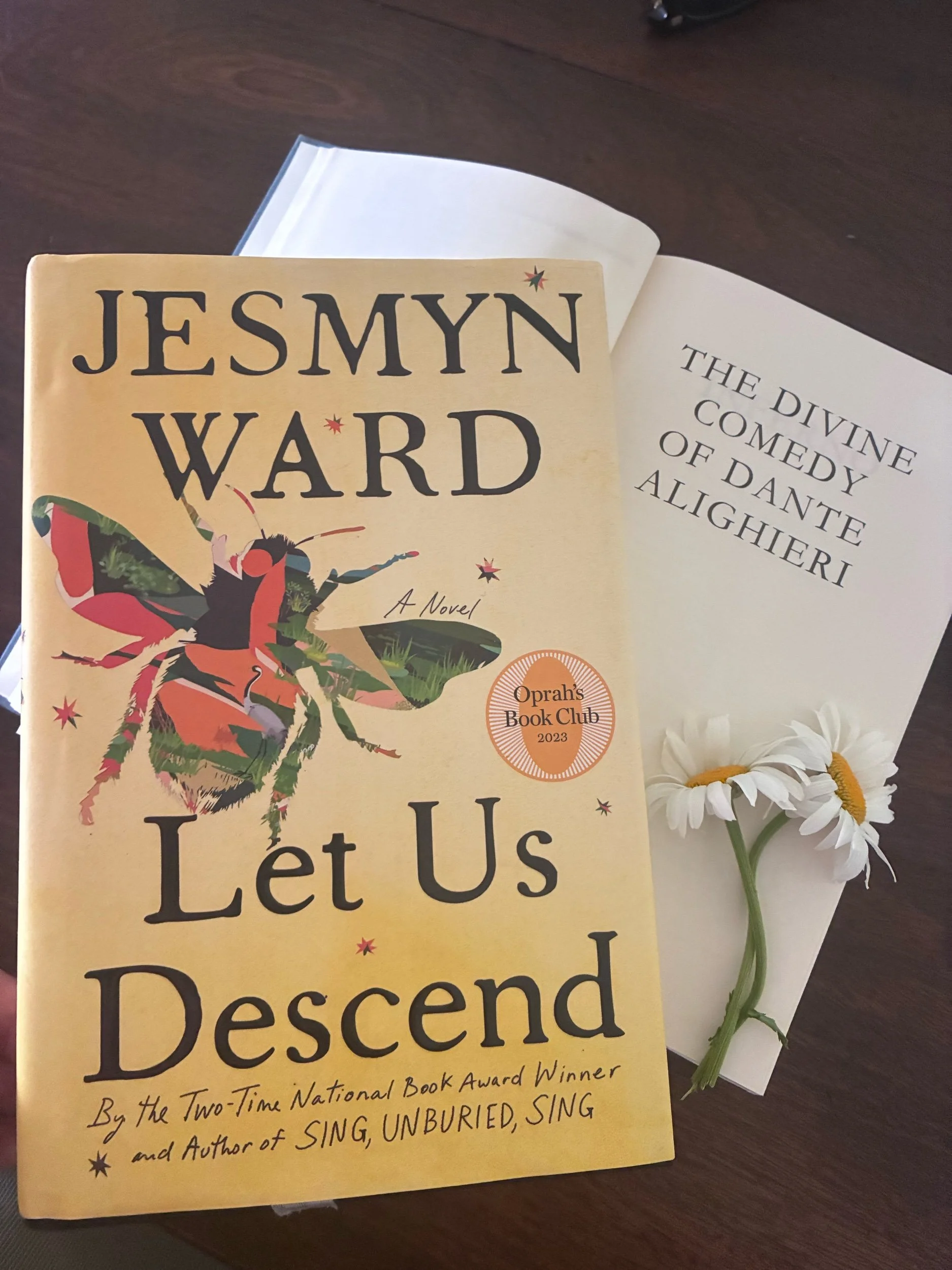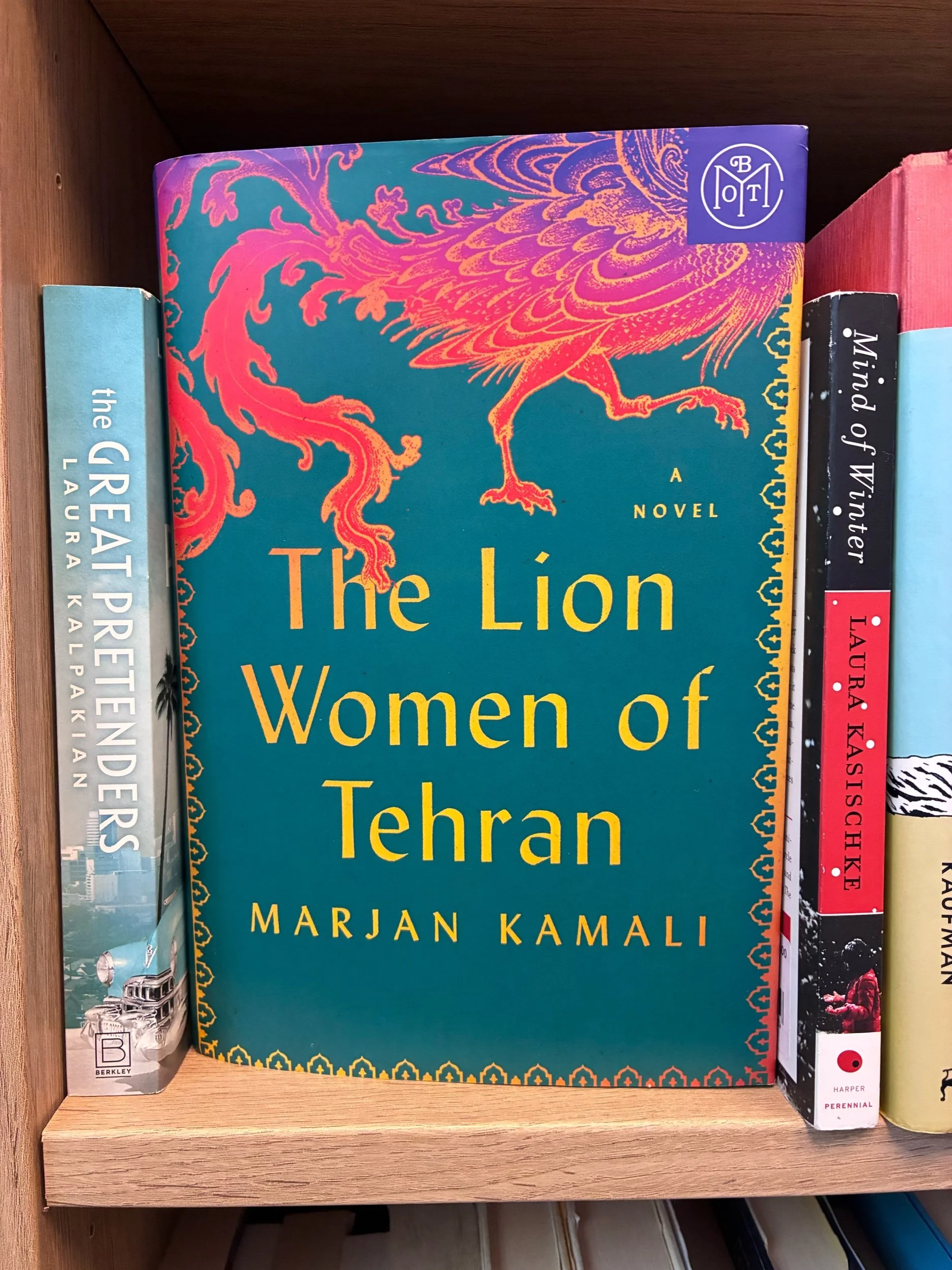Let Us Descend
Jesmyn Ward’s most recent novel, Let Us Descend (2024) is at once brutal and beautiful. It is also a literary masterpiece, referencing and re-envisaging Dante’s Inferno. The novel follows the story of Annis, born enslaved in nineteenth-century Carolinas. Annis is sired by the master, forced to serve her pale half siblings, then sold south. She descends from warrior women in Africa. Her mother teaches her the ways of the warrior hidden in the forest. She passes on the stories of her own mother, Annis’s grandmother, Aza, who was stolen and stashed on a ship bound for new land. Despite the brutality of their circumstances, when the man who sires Annis turns a lascivious eye her way, the mother and daughter are one another’s life lines. That is until the Georgia men come for Annis’s mother. A new connection, a romantic one, becomes the life raft for Annis amid the churn of grief’s gale. But that relationship, again, is cut short when Annis herself is sold south. The spirals of descent continue, each alluding to a layer in Dante’s Inferno. Let Us Descend is an eloquent story of survival, of culture and family, of faith and magic, and the power of storytelling.
Early in the novel, Annis overhears the tutor teaching her half sisters lines from Dante’s famous Inferno. “Let us descend” speaks the poet Virgil, and his words become a mantra as Annis walks south, bound to other stolen women with rope and trauma. Just as Virgil leads Dante through the growing depths of hell, Annis’s captors lead her and the other stolen over rivers and through swamps until arriving in the hell of New Orleans’s slave markets. Along the way, Annis makes a new connection; this time to one of the spirit world who serves as a helper of sorts, her guide. Midway through her journey, Annis recalls the starlight which greets the Italian poet and his guide on their ascent at the Inferno’s conclusion. Starlight whispers hope at the end of a trial-ridden trail. And despite the near constant loss of all her human connections, Annis kindles a flicker of hope.
This is, to be clear, not an easy book to read. Annis’s journey and the reality of nineteenth-century chattel slavery in America generally, abounds with brutality, trauma, and despair. As tobacco plantations in the more northern to-be confederate states (the Upper South) began to fail, the landlords turned to sale of enslaved people for financial gain. (The cotton, sugarcane, and rice plantations of the Deep South were viable only with mass numbers of enslaved laborers.) This practice divided families—children separated from parents, spouses from one another—and sent a steady stream of enslaved men, women, and children on a gruesome trail south to the New Orleans’s slave markets. Annis (fictional though she be) is one of roughly one million enslaved people to make the journey in the first half of the nineteenth-century. Through Ward’s brilliantly crafted fiction, readers can struggle along that path trod by so many stolen two centuries past. Indeed, Let Us Descend joins books like The Water Dancer and The Underground Railroad in connecting the experience of chattel slavery to contemporary Americans of all races and backgrounds; these books are vital in preserving a living memory and fostering ongoing empathy for the brutal system on which so much of early America relied.
Ward’s revision of a canonical classic (Dante’s Inferno) makes the novel all the more rich. She joins other contemporary revisions of classics (from Demon Copperhead to James), in reframing canonical literature to some element of the American experience. Even in the final lines of this powerful novel, Ward alludes back to the famous Dante’s Divine Comedy, and Annis’s journey concludes with hope.
Bibliography:
Ward, Jesmyn. Let Us Descend. Scribner: 2023.
A few great passages:
"’Some think those that die come back if they die in a bad way, a way so awful Great God turn they face. Fon believed spirits come for you no matter the why, no matter when, if you call. You swing now,’ Mama says. I swing and she blocks and swings. I barely knock it away. I am breathing harder than I should be. Mama steps back and holds her spear out, ready. ‘Don't think of me like that, you hear? I always come for you. Beyond this time, into the next. Always’” (14).
“The universe is no straight line, no narrow road. The universe is a riddle, a slant gathering of places, of voices, of happenings” (125).
“She will always be with me. I know it through my gasping.
Know it through my grasping. I know that I will see the gleam of her in the pocked glitter of the moon, in its embered shine. Know I will see her in the shattered stream of stars across the molasses-dark sky. Know that I will see her in the wrinkling of my hands, the whitening of my hair. After my last breath, at the end of my toil and hours, know it will be her who will ferry me across the Water” (273).






